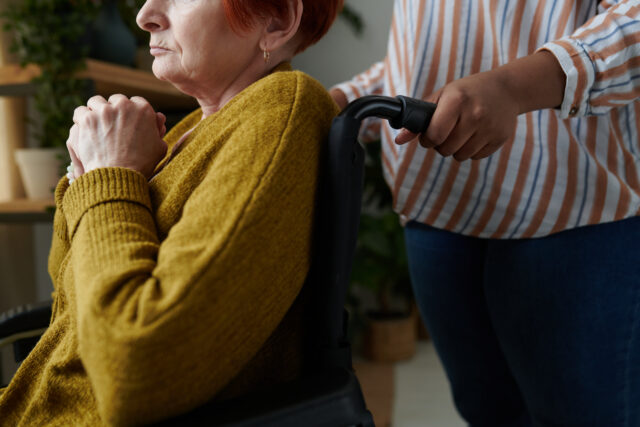
Depression Abates When Women Hit 60
Motherhood, career anxiety, menopause – women, throughout their lives, move from one psychological stressor to the next.
Well, ladies, there’s hope: your stress should start to ease around age 60.
With the #MeToo movement against workplace abuse of young adult women dominating the headlines, there’s a quieter movement of baby boomer women exploring what it means to get old. Book publishers are flocking to writers of self-actualization books like “Women Rowing North: Navigating Life’s Currents and Flourishing as We Age” and “50 After 50: Reframing the Next Chapter of Your Life.”
Perhaps publishers sense a market for these books because women of all ages suffer depression at rates two to four times higher than men. But a study in the journal Maturitas finds that many women shed their depression as they move from their mid-40s into their 60s.
To pinpoint individuals’ psychological changes over time, this study analyzed the group of women who participated in a telephone survey from beginning to end, 1992 to 2012.
The women, who live Melbourne, Australia, were asked a battery of questions to determine whether they were depressed – questions about whether they felt optimistic or discontented, socially engaged or lonely, impatient or cheerful, clear thinking or confused.
They were also asked whether they suffered from bad moods, which can be a precursor to depression. The researchers found that the women’s moods improved significantly as they aged.
The drop in negative moods ushered in a drop in the prevalence of depression: 23 percent of the 60-year-olds in the study were depressed but only 15 percent of the 70-year-olds.
Remember the slogan, “You’re not getting older, you’re getting better,” from the cheesy 1971 commercial for Clairol Living Color hair dye? If you didn’t believe the slogan then, maybe you’ll believe it now.
Squared Away writer Kim Blanton invites you to follow us on Twitter @SquaredAwayBC. To stay current on our blog, please join our free email list. You’ll receive just one email each week – with links to the two new posts for that week – when you sign up here. This blog is supported by the Center for Retirement Research at Boston College.
Comments are closed.







This is hard to believe. I see many women, including myself, become widows, suffer from various illnesses as we age, live isolated from family and sometimes lose economic power. Not all women have children and that becomes a bigger, and usually more, negative factor as they age too. It all adds up to depression.
Perhaps more of the most positive-thinking of the women survived to 70. Depression is a known risk factor for poor health. Do those who are most depressed at 60 survive until and past 70?
I heartily agree. My 50’s was a great chapter in my life. I was more financially secure, my children were college grads with good jobs and living on there own. I finally had more independence and more time for myself. A lot less worrying. I’m 61 now, retired for 2 years, and relishing my golden years. Bring it on.
Working part time in 2 nursing homes leads me to discount this research. Of course needing long term care has its own hazards, but most of the patients I have contact with have depression symptoms. After realizing that they have safety issues some appreciate the care, most grieve.
Small incentives make an impact on depression symptoms. If you know someone in LTC make an effort to contact them, even a note in the mail helps. And not even LTC, we all need to reach out to each other.
I agree with Lisa’s comment. However, had I remained on my life’s treadmill and not done the work described in my book, “50 After 50: Reframing the Next Chapter of Your Life” (Rowman & Littlefield 2018), I would have stayed struck. Now I am finding my passion in helping others move through transitions in life. Thank you, BC, for the mention and highlight!
Maria